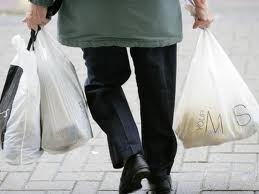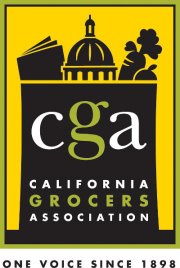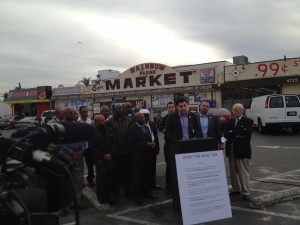 For decades we have always heard from what have frankly been fringe, environmental extremist groups about the need to ban plastic grocery bags. These are the same groups that want Americans out of their cars. And that predicted that long ago the polar ice caps would be nonexistent by now. However, in recent years, the movement towards banning plastic bags has been gaining traction at the local level, primarily in liberal communities where left wing politicians dominate city councils. In these local areas, it is typical to see these local politicians completely dismiss all of the factual data that inconveniently dispels most of the myths about the alleged negative impacts of plastic grocery bags.
For decades we have always heard from what have frankly been fringe, environmental extremist groups about the need to ban plastic grocery bags. These are the same groups that want Americans out of their cars. And that predicted that long ago the polar ice caps would be nonexistent by now. However, in recent years, the movement towards banning plastic bags has been gaining traction at the local level, primarily in liberal communities where left wing politicians dominate city councils. In these local areas, it is typical to see these local politicians completely dismiss all of the factual data that inconveniently dispels most of the myths about the alleged negative impacts of plastic grocery bags.
If I had to point to a political occurrence that has given rise in the positive momentum of plastic bag ban advocates, it is an unholy alliance that has been forged between the afore-mentioned enviro-extremists, and owners of large grocery store chains (you know them — Ralphs, Safeway, Vons, Albertsons, et.al.). In what is really a disgusting and immoral pursuit of massive amounts of profit through government regulation, we are seeing a pattern of ordinances that not only ban plastic grocery bags, but which also require grocery stores to charge a ten cent fee on paper bags. Given that the cost to a grocery store to purchase a paper bag is only a few cents, that means that grocery stores are making a mint — profiting millions of dollars as these ordinances, that (conveniently) in order to avoid being consider a tax increase, cannot require that the stores turn the proceeds of these fees to the government. So the typical song and dance that now takes place is some enviro-groups come forward in a city, along with some representative from the California Grocers Association, and talk about how this kind of ordinance is the greatest thing since sliced bread, with nary a concern about the negative impacts on consumer choice and such.
 Last year Democrat State Senator Alex Padilla brought forward the latest in a string of thus-far-unsuccessful statewide plastic bag ban proposals, SB 405. It was structured exactly as I have described above, and of course the high paid lobbyists representing the grocers went “all in” to try to pass this legislation. Fortunately, in a Capitol that passes way too many nanny-state bills, SB 405 was defeated in the State Senate. If you haven’t seen it, this video with highlights of the articulate floor speeches against the bill is worth a couple of minutes of your time.
Last year Democrat State Senator Alex Padilla brought forward the latest in a string of thus-far-unsuccessful statewide plastic bag ban proposals, SB 405. It was structured exactly as I have described above, and of course the high paid lobbyists representing the grocers went “all in” to try to pass this legislation. Fortunately, in a Capitol that passes way too many nanny-state bills, SB 405 was defeated in the State Senate. If you haven’t seen it, this video with highlights of the articulate floor speeches against the bill is worth a couple of minutes of your time.
Which takes us to the latest large city to be confronted with the specter of a plastic grocery store bag ban and (of course) the ten cent paper bag fee — San Diego. Yes, as if there hasn’t been enough turmoil in America’s finest city, which currently has an acting Mayor and is in the midst of preparing for a second, run-off special election to select a replacement for the disgraced ex-Mayor, Bob Filner. The bag ban has been introduced by an extremely liberal member of the San Diego City Council — Sherri Lightner — who represents a district with many affluent coastal neighborhoods. Unfortunately for the enviro-whacks, while San Diego has a well-earned reputation for being environmentally sensitive and aware, it not an ultra-liberal city that is prone to pushing extreme measures, such as one like this.
Besides all of the immutable facts out there that will be persuasive to those who are not captive of an extremist agenda, the Lightner ban and tax proposal in San Diego is now seeing opposition from a constituency group that the Councilwoman probably was not expecting…
When I saw a media advisory that a group of ministers from the more economically challenged south side of San Diego, along with former Democrat State Senator Wadie Deddeh and Mark Arabo, President of the Neighborhood Market Association were going to be holding a press conference to oppose Lightner’s “proposed plastic bag ban and tax scam” — I decided that I would drive down for the event. While I was the only blogger there to cover it, the event was covered by literally every television news station in San Diego.
 The presser opened with a very strong statement from Arabo, who said in part: “This is a terrible plan. It’s terrible because the solution is worse than the so-called problem… It’s a classic case of politicians attempting to do something for the environment, in part to appease some environmental groups, without seeing the bigger picture… This ban will have reaching ramifications. It’ll cost taxpayers – mothers, fathers and brothers – more money when they go shopping for groceries…”
The presser opened with a very strong statement from Arabo, who said in part: “This is a terrible plan. It’s terrible because the solution is worse than the so-called problem… It’s a classic case of politicians attempting to do something for the environment, in part to appease some environmental groups, without seeing the bigger picture… This ban will have reaching ramifications. It’ll cost taxpayers – mothers, fathers and brothers – more money when they go shopping for groceries…”
And Senator Deddeh, quite articulate at his young 93 years of age, railed against this proposal that would line the pockets of wealthy grocery store owners while harming poor people in San Diego.
But the most powerful speaker at the event, flanked by a host of other ministers was Bishop George McKinney, Pastor of St. Stephens Cathedral of the Church of God — who, I am told, is a well respected leader in the community.
“In essence, this is a tax — a multimillion-dollar tax on San Diegans,” McKinney told reporters. “And with the cost of living on the rise, I can tell you the last thing we need today from government is something that will make life even more difficult for people, especially working families. Government should be finding ways to help people — not hurt them.”
Since I was on hand, with my trust iPhone, I actually spoke with Bishop McKinney and asked him to talk to me as if he were addressing Councilwoman Lightner. So below I have embedded that video.
As I said above, there was a ton of local TV media on hand covering the press event. Below is just one clip that aired on the news in San Diego on the local ABC affiliate…
No doubt this event and the loud voices of this impacted community will weigh heavily on the San Diego City Council, which has five Democrats and four Republicans. Currently the city is preparing to conduct an environment impact report studying the effects of the proposal ban and tax, which won’t be completed until well into 2014 — and after there is a new Mayor sworn in at City Hall.
Stepping back from San Diego, last week State Senator Alex Padilla announced that he would once again bring before the California legislature his bill to outlaw the use of plastic bags in grocery stores, and to mandate a ten cent fee on every paper bag used (to the pleasure of salivating, greedy mega-grocers). Debra Saunders, a well respected columnist for the San Francisco Chronicle penned a strong, persuasive piece on why this proposal was, and still is extremely poor public policy. I would encourage you to read her column, but pulling a brief excerpt: “To sum up: Single-use bag bans don’t really reduce greenhouse gases, and they encourage the use of cloth bags that can be hazardous to your health. And if you choose to opt out because it’s healthier and more convenient, you get nickeled and dimed when you go shopping. City politicians love to come up with taxes that are supposed to discourage what they consider to be bad behavior – buying Happy Meals drinking soda, maybe, and, it seems, spending money in San Francisco stores.”
A final thought for those who are being asked to consider supporting the banning of plastic grocery bags, whether a state legislator or a local city council member — one of the major arguments always made by proponents of the ban is that it would alleviate local government of an alleged financial burden associated with plastic bag use. Guess what? A new study just released this month, conducted by the well-regarded National Center For Policy Analysis, examined the impacts of bag bangs in six local areas — three in California: San Francisco, San Jose, and the City and County of Los Angeles — and came to the conclusion that. “…an examination of the bag bans and budgets for litter collection and waste disposal… shows no evidence of a reaction in costs attributable to reduced used of plastic bags.”

